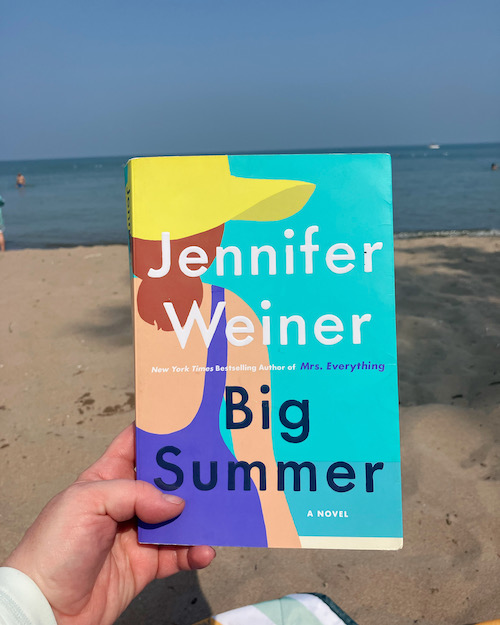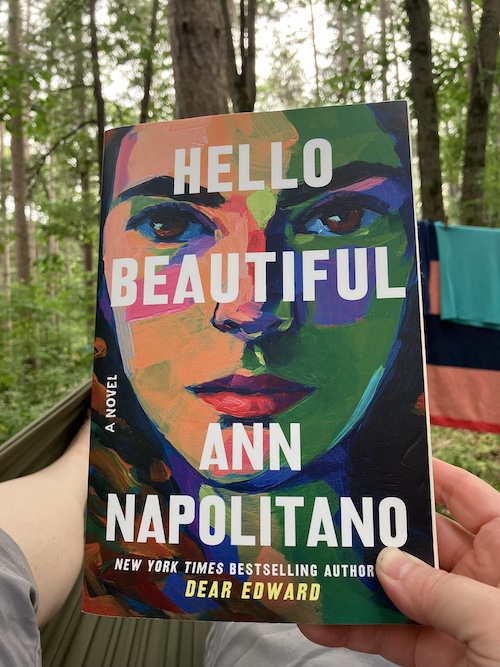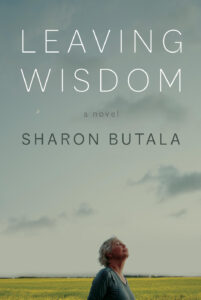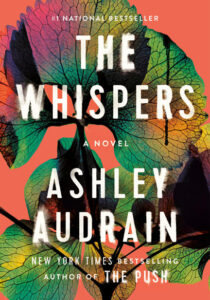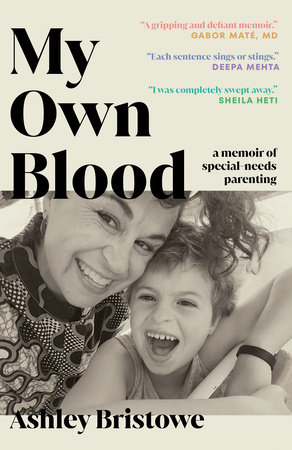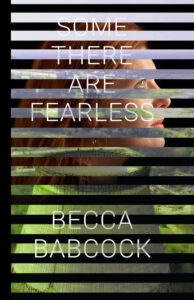June 29, 2023
Tis the Damn Season
Blogging will be intermittent for the next two months as I get busy going outside and doing stuff. I am wishing you much of the same!
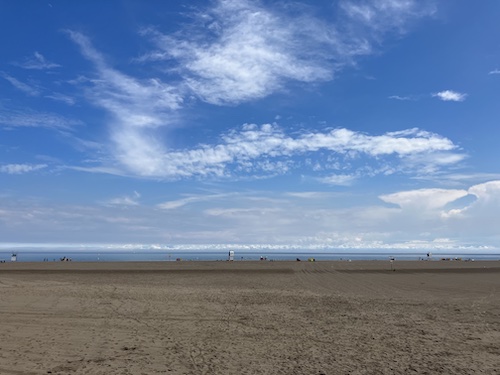
June 27, 2023
Gleanings
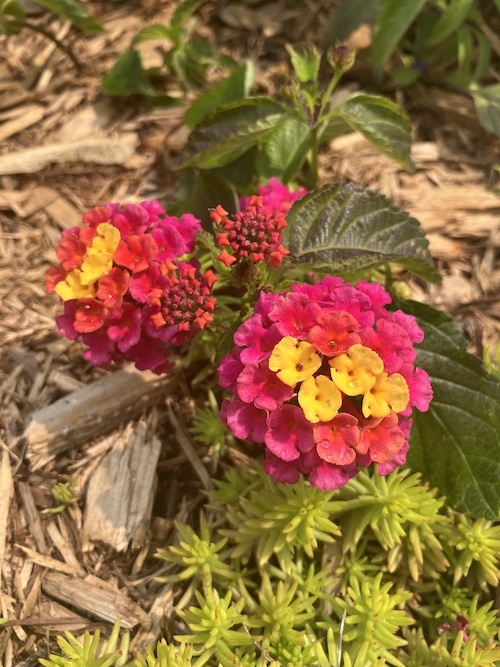
- We aspire towards the observation of little things, the magic in the smallness of everyday. We debate not losing our power and staking a claim to it. But there are times when all we need is to become small ourselves and watch the world go by as if it has no need of our presence.
- I don’t know whether I’ll need it in the same way; nor what new or changed goals it may meet or fulfill. I don’t know. I do know that I still love to write in order to find order in the dissonance of experiences. I still love to write to untangle the muddle of my mind. I still love to write to record and reflect and come closer to understanding the world. But it’s just one way of knowing and doing and being. I’m discovering other ways now, too.
- If I’m being honest, not precisely is where I land most of the time, even when I deliberate for weeks and finally tire of my own waffling and just pick something.
- For now, I will take my extra time to enjoy my children, without regret. We drive down country roads, listening to music and talking. Sometimes we play a certain song (Unwritten) and laugh. It might feel silly, but it is good for our souls. The three of us singing loudly (and horribly). The message loud & clear. We are ridiculous, we are alive. Things aren’t perfect, but they are pretty good. I’m always writing my book.
- The bustle of the morning is over and the day holds so much potential. I’m also not near the mid-afternoon crash yet or the evening anxiety.
- And so I think we just need to keep training ourselves to see beauty, and sharing that, and maybe somehow it translates down the line into something good. It can’t hurt to try, anyway, right?
- Stitch by stitch, I wish they knew all the places this blanket travelled, all of the tears it has absorbed, the dirt and crumbs and germs it has acquired, the specific, soothing smell. The nurturing, the comfort, the anxious moments when it is pulled away for a bath. The love.
- Sometimes, around 4 p.m., particularly if the day has been busy, I think to myself, In 3 hours you will be reading! I’ve never watched much television and so after dinner, after dishes, I head upstairs to arrange 4 pillows behind me and I get into bed to read. This time of year the windows are all open and I can hear the evening chorus–robins, Swainson’s thrushes, western tanagers, and others.
June 26, 2023
Leaving Wisdom, by Sharon Butala
Leaving Wisdom is the latest from Sharon Butala, author of over twenty books of fiction and nonfiction whose vision of the Canadian west has always made me think of her in the company of Joan Didion, and she continues to remap her familiar terrain in this story of aging and coming to terms with one’s history (and history in general) set in the fictional Saskatchewan town that her protagonist, Judith, decides to the return to in a post-concussion fog.
The concussion occurs after a fall at what was supposed to be Judith’s retirement lunch after a long career as social worker in child protection/family services. In the days that follow, Judith’s brain is confused, her head aches, and she’s overwhelmed by considering the threads of her life, in particular her four daughters, who all continue to occupy her attention in different ways, her two late husbands, and the family she left behind as a teenager when she fled their piety and the suffocating small town of Wisdom, a place in which she realizes she has unfinished business still and so she decides she must return.
Once re-established in Wisdom, Judith tries to ease her way into a relationship with her estranged siblings, continues to worry about her daughters, and discovers her father’s own traumatic history in World War Two, which becomes connected in her mind to a local act of antisemitism. Meanwhile there are strange and troubling goings-on at the house next door which suggest one can never travel far enough to escape the world—let alone family histories and one’s own past.
Leaving Wisdom is quiet, thoughtful and utterly absorbing novel about families, aging, trauma and history, and how all of these factors happen to intersect.
June 26, 2023
Most Anticipated: AFAF is 20% off at Indigo this week!
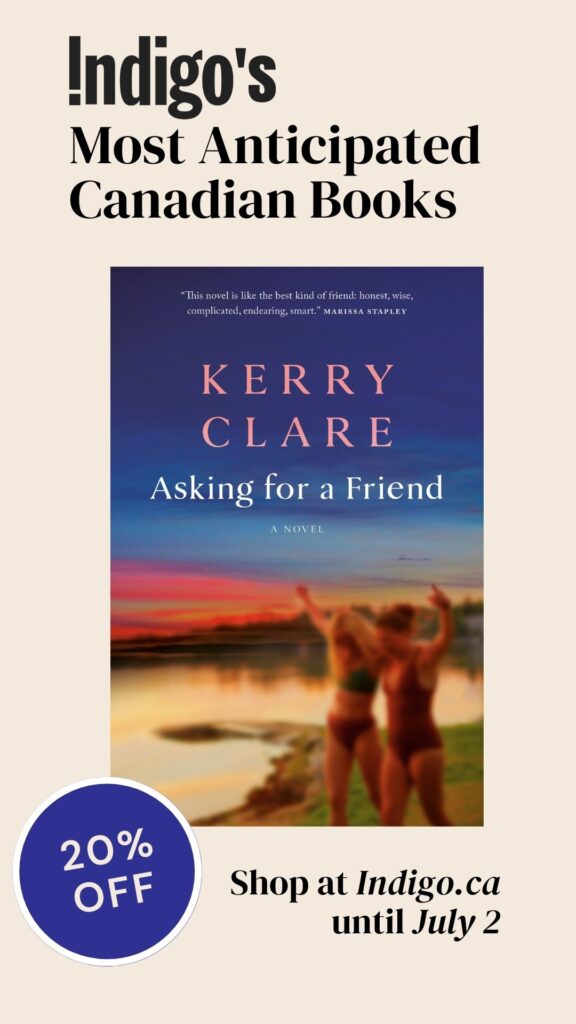
Is there a nicer way to kick off the week than with the news that ASKING FOR A FRIEND is part of @indigo’s MOST ANTICIPATED CANADIAN BOOKS promotion with pre-orders on sale for 20% off until July 2?
I DON’T BELIEVE THERE IS!!
Out September 5 from @doubledayca, now’s your chance to support it with your pre-order and get a sweet deal in the process.
I am so excited for readers to fall in love with Clara and Jess!
“This novel is like the best kind of friend: honest, wise, complicated, endearing, smart—and Kerry Clare as a writer is all these things, too. What a poignant, observant tribute—and elegy—to the life sustaining force that is friendship between women. Clare sees it so clearly: the way friendship can be a love story, complete with heartbreak and redemption. I plan to share this book with my dearest friends, all the while marvelling at how lucky I am to have them, and how much better a place the world is with Clare’s books in it.” —Marissa Stapley, New York Times bestselling author of Lucky
June 26, 2023
Believe the Hype
Wow, did Ashley Audrain’s The Whispers live up to the hype, and then some. (Most sophomore novel don’t!) It was reminiscent of Lianne Moriarty’s Truly Madly Guilty, a book I LOVED, but then managed to turn into a literary creature all its own with such complicated, deeply imagined characters whose stories were interwoven in ways that never stopped surprising me. The plot is propulsive and rich with suspense, but also poses some fascinating questions about women’s choices and women’s lives, motherhood and infertility. Such a fantastic read.
June 23, 2023
Happy Birthday, Clarence Thomas?
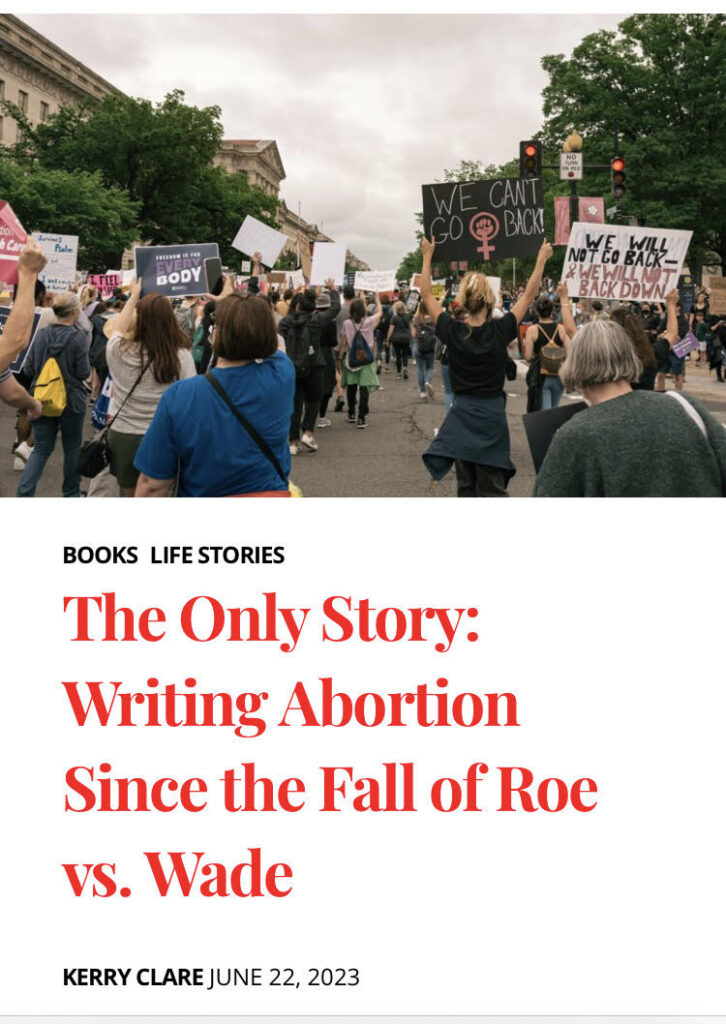
Before last June, it had never occurred to me that Clarence Thomas had a birthday. That he had not, in fact, emerged into the world middle aged, sitting in a room crowded with concerned-seeming people who pronounced “harassment” in surprising ways while telling stories about pubic hairs left on pop cans that were bewildering to my 12-year-old ears, and that I don’t understand any better today.
But it turns out that Clarence Thomas’s birthday is today, June 23, and also the day before mine, which I discovered the morning I turned 43 while hanging out sheets on my clothesline and listening to @mollyjongfast on her political podcast right before I got the terrible news that the US Supreme Court had ended abortion access for millions of Americans.
Happy Birthday, Clarence Thomas…I guess??
Thanks to @shedoesthecity for publishing my essay on the devastation of Roe vs. Wade falling one year ago, but also about how it made me realize how my new novel (ASKING FOR A FRIEND, forthcoming from @doubledayca on September 5) had to end.
June 21, 2023
My Own Blood: A Memoir of Special Needs Parenting, by Ashley Bristowe
“Anyone who claims that our society cares about people with special needs, families in crisis, mothers in general, or the exigencies of working parents can suck my strap-on. Individuals care, when there’s an inescapable or financial reason that makes it impossible not to. But society at large cares not a lick. I didn’t really know this before 2009.”
Ashley Bristowe’s memoir My Own Blood—just out in paperback—is a tough, brutal, emotional, excellent, impossible roller coaster of a read. I say “impossible” because I keep trying and failing to make sense of what was her reality for so many years (and continues to be in some ways), to tie her story in a tidy knot, and I can’t, which is fitting because my sense of impossibility about this story ain’t got nothing on what it must have been to live it.
When Bristowe’s second child is born in 2009 and diagnosed with a condition so rare that it doesn’t even have a proper name yet and only 76 other people had ever been diagnosed, her story diverges from the path she’d been expecting as her family grew—she and husband were freelancers, lived a creative and colourful life rich with travel and adventure. Frustrated by a lack of support for her son’s development in those crucial early years, and by continued entanglement in red tape and bureaucracy specially designed to keep families from accessing care and funding for which they’re eligible (and a medical system where authorities never admit to not knowing or having no answers, and instead are mostly fluent in the language of bullshit, which Bristowe is NOT HAVING), she finally finds the answers she’s looking for with a US establishment dedicating to fulfilling the potential of children with delays, disabilities, and brain injuries, whose officials believe it distinctly possible that, with years of intensive therapy, special diet, and more, that her son will be able to walk, to talk, to read—all those things that everyone has told Bristowe will never happen.
So in some ways this is a story of triumph, but in order to reach that triumph, Bristowe is forced to sacrifice everything—her career, her physical and mental health, many of her relationships, and general sense of well-being—to give her life over to Alexander’s treatments with a dedication that doesn’t always make sense to those around her. And so I’m not really sure that’s such a triumph after all—Bristowe writes so powerfully about her despair, her loneliness, her sense of absolute rage at systems that broke her and broke her again, but all the while she kept going, making clear that she’s an incredible force of a human, as well as an inspired and beautiful writer.
So was it worth it! YES! And NO! Because life isn’t tidy like that, is instead brutal, random, and totally unfair sometimes, where love and rage exist in equal measure (and there is so much love here). This is also a tricky book because as it rails against ableism and the low-expectations that our society has of the possibilities of disabled people’s lives (which conveniently correlates to how little we’re willing to invest in them), the idea of disability as something to be fixed is also something to trouble over, but I wonder if that’s just another way for some of us to pass the buck?
June 19, 2023
Invincible
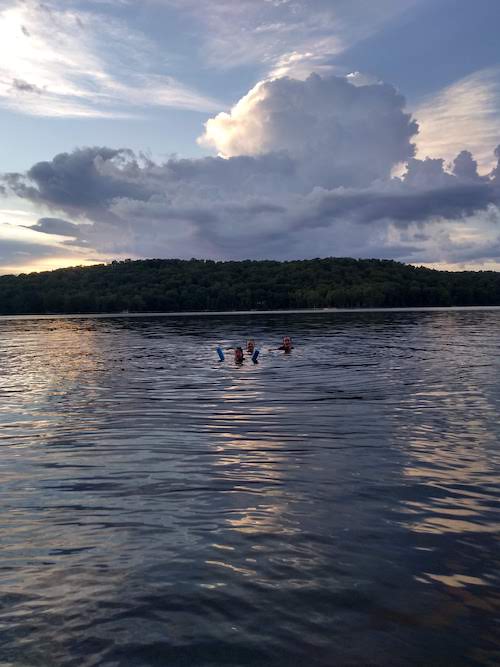
You can’t go chasing summer, is the thing I keep thinking, but instead you just have to wait, and it comes on like a wave, a wave of green overtaking the garden, and of heat, and crowds, and traffic, and too-muchness, extremes. In summer I get to head out of town and reset my equilibrium, days away from city and noise and the online world, when everything I read is printed on paper, and I’m longing for that peace right now, but not the way I was a year ago, when I felt like I’d come so far, but I still was so broken. Like I’d never be able to withstand too-muchness again. Six months of recovery after my brain broke, and I thought it would always be like that, struggle and hard. So it was especially a relief to ease into summer in 2022, to find peace and stillness after so many months (and years) of tumult. Though, of course, as an anxious person, I was worried about that, asking my therapist what she thought of the fact that I was doing so well, almost like riding a bike with no hands, like, wasn’t this reckless. “I’m not using any of my tools,” I told her. “I haven’t picked up Pema Chodran in weeks. Like, what if I forget everything that I’ve learned?”
And in response she told me the very best thing, which was just to steep myself in this moment, to close my eyes and breathe it in deep and absorb everything about it, imagine myself wholly immersed, which wasn’t so hard, because I spent so much of the summer immersed anyway, literally, which meant something really profound to me, to be deep in the water, at eye level, and a part of the world in such a fundamental way. There was something about pickles, preserves, about bottling summer, and I decided to lean in and do that. The photo accompanying this post like talisman of all that, and I had it printed as an 8’11 and framed up on the wall, and it’s my phone’s wallpaper too, summer summer, deep summer. And it worked—in the fall I was still marvelling at how I was carrying summer with me, that ease, that inner warmth—maybe this was what Camus was talking about? I was carrying it still through the winter, and then the spring, that peace, a sense of being steady, okay. Even as the seasons were shifting all around me, as seasons do, and the ground was moving too, and there were floods and fires and earthquakes and plagues, not to mention school fun fairs and silent auctions and elections and travel and my health card and drivers’ license were about to expire, and everyone kept getting pinkeye, and it lasted for weeks, I was still steady. I’ve never known anything like it.
And now here we are again on the cusp of another summer, which has arrived almost like pinkeye, “You again?”. And I keep tracing the distance from there to here, which hasn’t been an uphill climb at all, just a gorgeous, steady walk, so much easier than those first six months, which felt impossible. You can’t go chasing summer is what I mean, but you can live in it, and let it carry you and give you faith, and help you float. It is possible to float.
June 15, 2023
Some There Are Fearless, by Becca Babcock
I had such a visceral response and connection to Becca Babcock’s Some There Are Fearless, a novel that begins with the Chernobyl disaster in 1986 and concludes on January 8, 2020, as a Ukrainian plane is shot down in Iran, a day that lives as a portal in my own mind as “this very weird time,” which is fitting (and eerie, and interesting) for a novel that is all about fear, and anxiety, and our notions of controlling and mitigating risk.
Jess grows up in Cold Lake, AB, in the shadow of the Cold War, living just outside a military base. The Chernobyl meltdown absorbs her attention, and this preoccupation, coupled with her academic aptitude and her single mother’s push toward achievement, leads her toward training as an engineer and then a career with Maritime Energy in Nova Scotia retrofitting coal plants, with aspirations to one day work in the nuclear field and prevent disasters like Chernobyl’s from ever happening.
There are other cold wars in Jess’s life—her father has long been estranged from their family, her difficult mother’s fraught relationship with Jess’s brother fills their home with tension, and Jess’s own connection with her mother doesn’t get any easy once her brother leaves to go get a job in the oil fields, putting even more pressure on Jess to be the one who succeeds. She finds solace in the company of Adam, a fellow engineering student, however, and they begin to build a life together, although it’s not always easy for Jess to connect, but they establish compatibility and eventually they have a child, and I love the way that Babcock subverts expectations about how the emotionally distant Jess might be rocked by motherhood (and Jess subverts her own expectations too)—”How could love be spontaneously generated? How could a body feel so much, be so enraptured with another creature who, moments before, had only existed as a kernel and a germ, and who now, just now, breathed in the world, became the most precious thing in that entire world for her two parents? How?”
In a world with Three Mile Islands, and Fukushima Daiichi, it’s hard to relax—though Jess explains that the nearby Fukushima Daini Nuclear Power Plant managed to avoid the same catastrophe that its sister plant was unable to prevent after the devastating 2011 Earthquake. And the illusion that she is eventually freed from, the trajectory of her story—which artfully braids together different timelines—is her gradual understanding that she’s not actually responsible for keeping the world safe, and that she can’t actually keep ill fortune from arriving at her doorstep, as her relationship with Adam falls apart, and her daughter undergoes testing for an “uncertain shadow” on her MRI. Jess can’t help but wonder if it was caused by the guided tour she’d taken to the Chernobyl zone nine months before her daughter was born, a risk exposure that seemed minimal and worth it at the time, but how do you ever know?
As someone with a Cold War fascination who has spent the last 18 months learning to live well again after experiencing debilitating anxiety, Some There Are Fearless really resonated with my own preoccupations, with my own challenges of making my way, as a person and as a mother, through our own particular age of anxiety. Blending beautiful writing with history and science, Babcock has created a rich and satisfying depiction of what it is to live in a world that is rarely steady.
